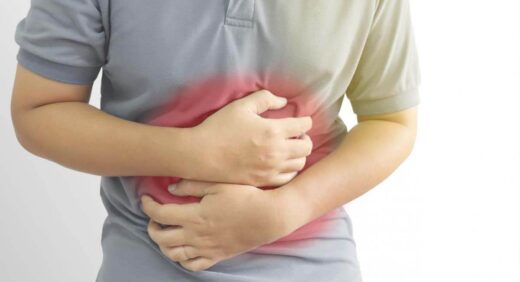Stomach rumbling, often referred to as borborygmi, is a natural part of digestion caused by the movement of food, liquids, and gases through the gastrointestinal tract. While it is commonly associated with hunger, it can also occur after eating or due to various digestive conditions. In some cases, persistent or unusually loud rumbling, especially when accompanied by symptoms like nausea or diarrhea, may indicate an underlying health issue.
What Is Stomach Rumbling?

The digestive system consists of the stomach and intestines, which work together to break down food, absorb nutrients, and eliminate waste. The small intestine processes nutrients, while the large intestine absorbs water and forms stool. As food moves through these organs, muscle contractions (peristalsis) push it forward, sometimes creating audible rumbling or gurgling sounds.
These noises, known as bowel sounds, are usually harmless. However, they can become more noticeable when the stomach is empty, when gas builds up, or when digestion is disrupted by factors like stress, infections, or food intolerances.
What Causes Stomach Rumbling?
Stomach rumbling can result from several factors, ranging from normal bodily functions to medical conditions.
Hunger
When the stomach is empty, the brain releases hunger hormones that trigger contractions, producing rumbling sounds. Eating a small snack can often alleviate this.
Gas and Swallowed Air
Eating too quickly, chewing gum, or talking while eating can lead to swallowing excess air, which then moves through the digestive tract, causing gurgling noises. Slowing down while eating and avoiding carbonated drinks can help.
Viral and Bacterial Gastroenteritis
Infections caused by viruses or bacteria inflame the stomach and intestines, leading to rumbling, diarrhea, and vomiting. Proper hygiene and food safety can reduce the risk of infection.
Irritable Bowel Syndrome (IBS)
IBS is a chronic condition that affects bowel movements and can cause loud stomach noises, along with bloating, cramping, and alternating diarrhea or constipation. Stress and certain foods often trigger symptoms.
Colon Cancer
Though less common, persistent rumbling accompanied by blood in stool, unexplained weight loss, or severe abdominal pain may require medical evaluation to rule out serious conditions like colon cancer.
Lactose Intolerance
People who lack the enzyme lactase cannot properly digest lactose (found in dairy), leading to gas, bloating, and rumbling after consuming milk products. Avoiding lactose or taking enzyme supplements can help.
Hernia
A hernia can obstruct the intestines, causing rumbling, pain, and nausea. Severe cases may require surgical intervention to prevent complications.
Constipation and Diarrhea
Both conditions disrupt normal digestion. Constipation slows movement, leading to gas buildup, while diarrhea increases contractions, creating louder noises. A high-fiber diet and hydration can regulate bowel movements.
Celiac Disease and Gluten Sensitivity
An autoimmune reaction to gluten damages the small intestine, causing rumbling, bloating, and malabsorption. A strict gluten-free diet is the primary treatment.
Acid Reflux (GERD)
When stomach acid flows back into the esophagus, it can cause rumbling, heartburn, and nausea. Lifestyle changes like smaller meals and avoiding spicy foods may help.
Food Poisoning
Consuming contaminated food leads to toxins or bacteria irritating the gut, resulting in rumbling, vomiting, and diarrhea. Most cases resolve on their own with hydration and rest.
Pregnancy
Hormonal changes and pressure on the digestive organs can increase gas and rumbling. While usually harmless, persistent discomfort should be checked by a doctor.
Other Causes
Diets high in artificial sweeteners (fructose, sorbitol), stress, and dehydration can also contribute to excessive stomach noises.
What Are the Symptoms of Stomach Rumbling?
Most bowel sounds are normal, but certain patterns may indicate a problem:
- Hypoactive sounds (reduced noise) suggest sluggish digestion, often seen after surgery or with intestinal blockages.
- Hyperactive sounds (excessive noise) may signal infections, food intolerances, or diarrhea.
Concerning symptoms include:
- Severe pain
- Bloating
- Fever
- Nausea or vomiting
- Blood in stool
- Unexplained weight loss
How Is Stomach Rumbling Diagnosed?
Most cases don’t require medical intervention. However, if symptoms persist, a doctor may:
- Review medical history
- Perform a physical exam
- Use a stethoscope to listen to bowel sounds
- Order tests (blood work, endoscopy, imaging) to check for infections, blockages, or chronic conditions.
What Are the Treatment Methods for Stomach Rumbling?
Treatment depends on the underlying cause:
- Hunger: Eat small, frequent meals.
- Food intolerances: Avoid trigger foods (e.g., lactose, gluten).
- Infections: Rest, hydrate, and take prescribed medications.
- IBS/Chronic conditions: Manage stress and follow a tailored diet.
General Prevention Tips:
- Eat slowly and chew thoroughly.
- Stay hydrated.
- Exercise regularly.
- Limit gas-producing foods (beans, carbonated drinks).
- Reduce stress through relaxation techniques.
Most stomach rumbling is harmless, but if it’s frequent or accompanied by severe symptoms, consult a healthcare provider for proper evaluation.